Trump's 145% China tariffs just triggered a devastating response that's wiping out America's heartland farmers
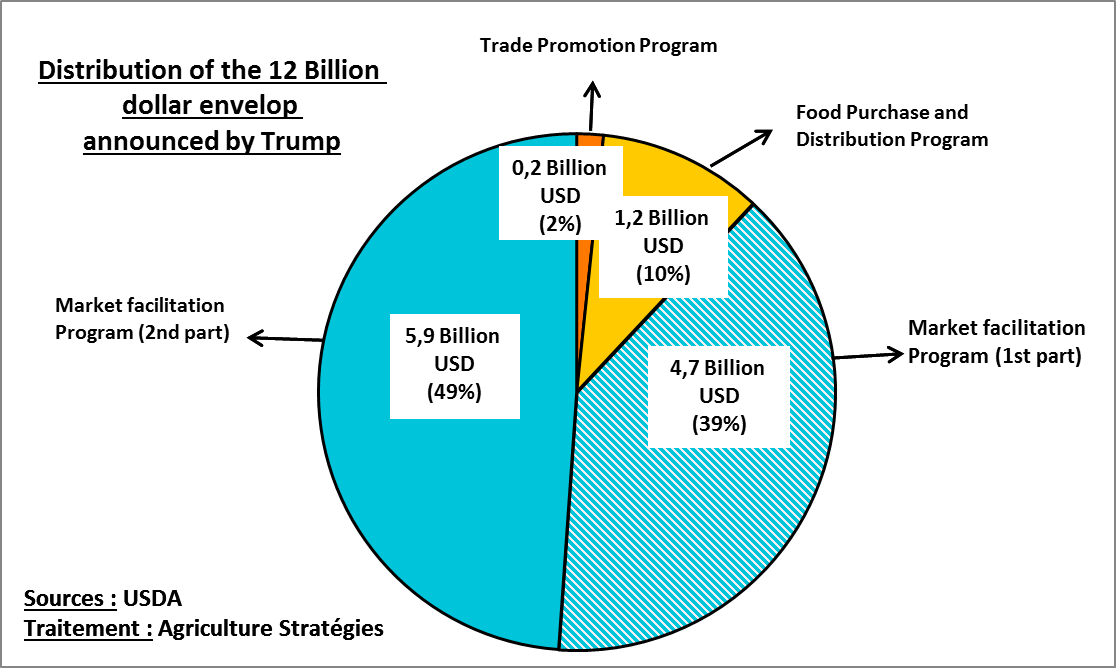
American farmers are about to lose everything.
President Trump's massive new 145% tariffs on Chinese imports have sparked a retaliatory economic firestorm that threatens to obliterate the very agricultural communities that helped elect him.
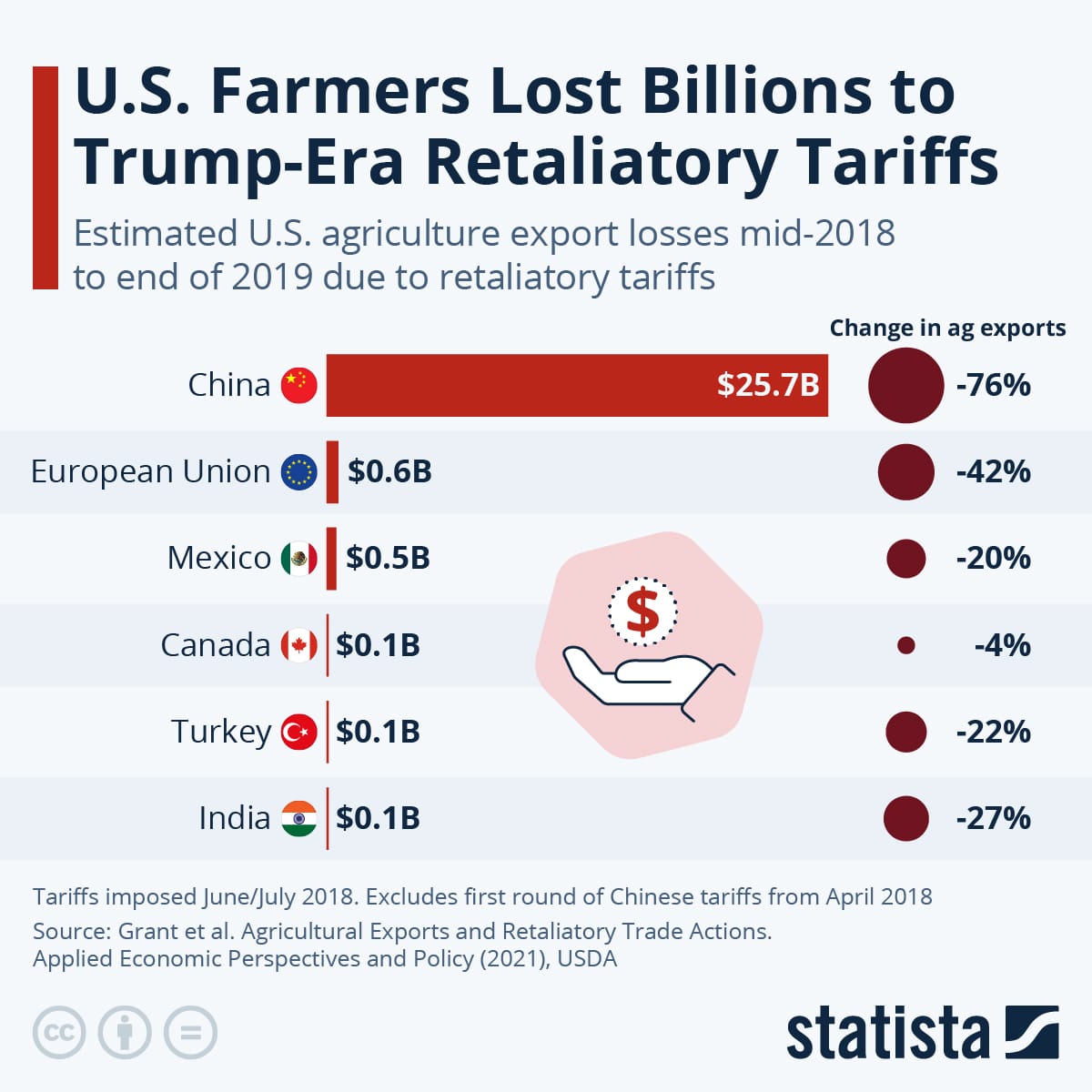
A Trade War Reignited
In a stunning escalation that has economists scrambling, President Trump imposed the enormous 145% tariffs on all Chinese imports last week.
China's response was swift and devastating.
Beijing announced a retaliatory 125% tariff on all US imports – a move that directly targets America's agricultural heartland.
This isn't just another political spat. It's the beginning of what experts are calling a full-blown trade war with potentially catastrophic consequences.
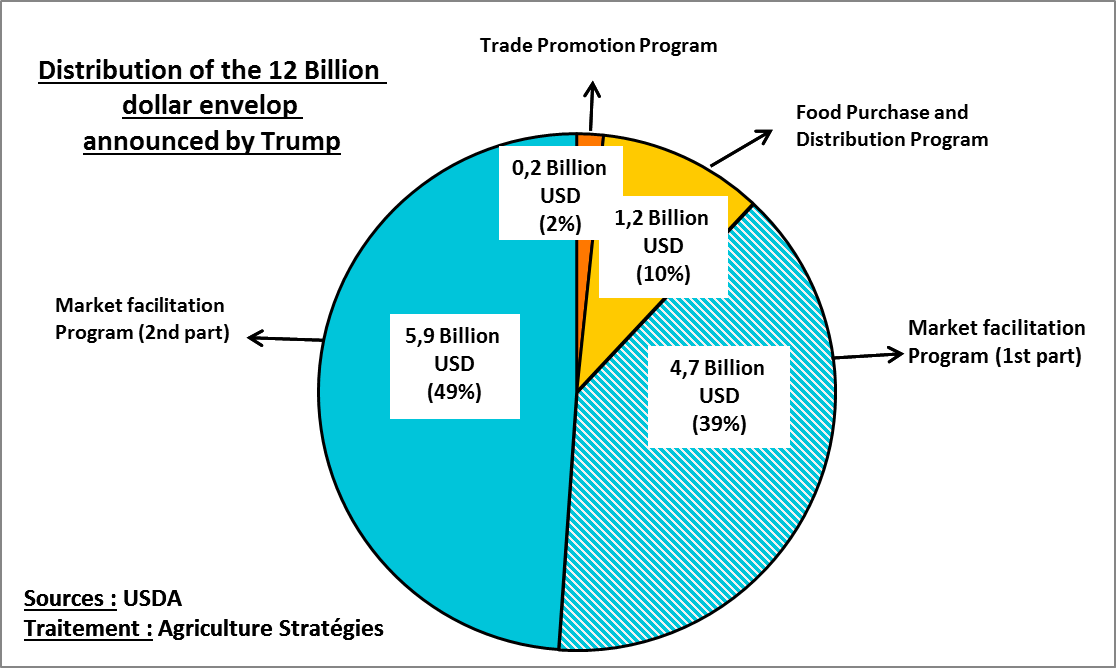
The Soybean Crisis
At the center of this economic battlefield: American soybeans.
US soybean exports to China are now subject to a crushing 135% total tariff, combining the new 125% levy with an existing 10% tariff imposed in March.
Why does this matter? Because China has historically been the largest buyer of US soybeans.
Analysts now predict China's imports of American agricultural commodities could plummet to near zero.
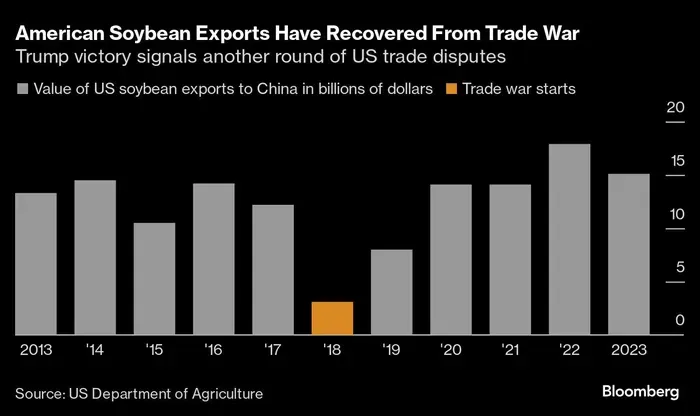
Brazil's Big Win
While American farmers face ruin, Brazil is poised to reap the rewards.
The South American nation, already the world's leading soybean exporter, has been systematically strengthening its agricultural relationship with Beijing.
Brazilian soybean exports to China have skyrocketed by more than 280% since 2010.
American exports during the same period? Flat.
Last November, Chinese President Xi Jinping made a high-profile state visit to Brazil, cementing ties between the two nations.
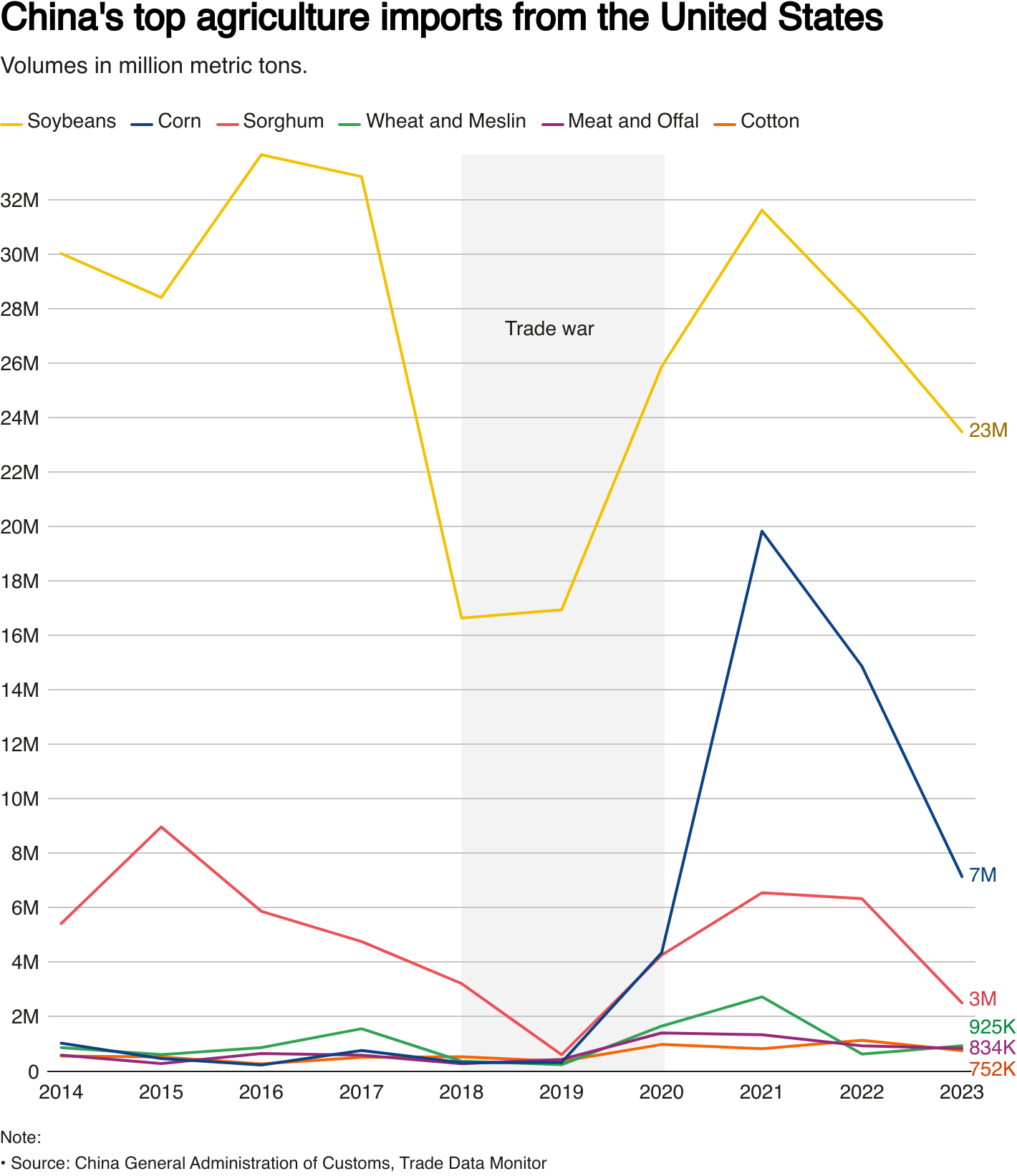
China's Strategic Pivot
China isn't just turning to Brazil. It's building a coalition.
Beijing announced Thursday it was strengthening trade cooperation with the Association of Southeast Asian Nations countries.
Earlier this week, China's Commerce Minister engaged with EU officials to restart trade relief talks.
The message is clear: China doesn't need American soybeans.
With Brazil's soybean crop projected to reach record levels this year, and Argentina (the world's third-largest producer) eager to increase exports, China has options.
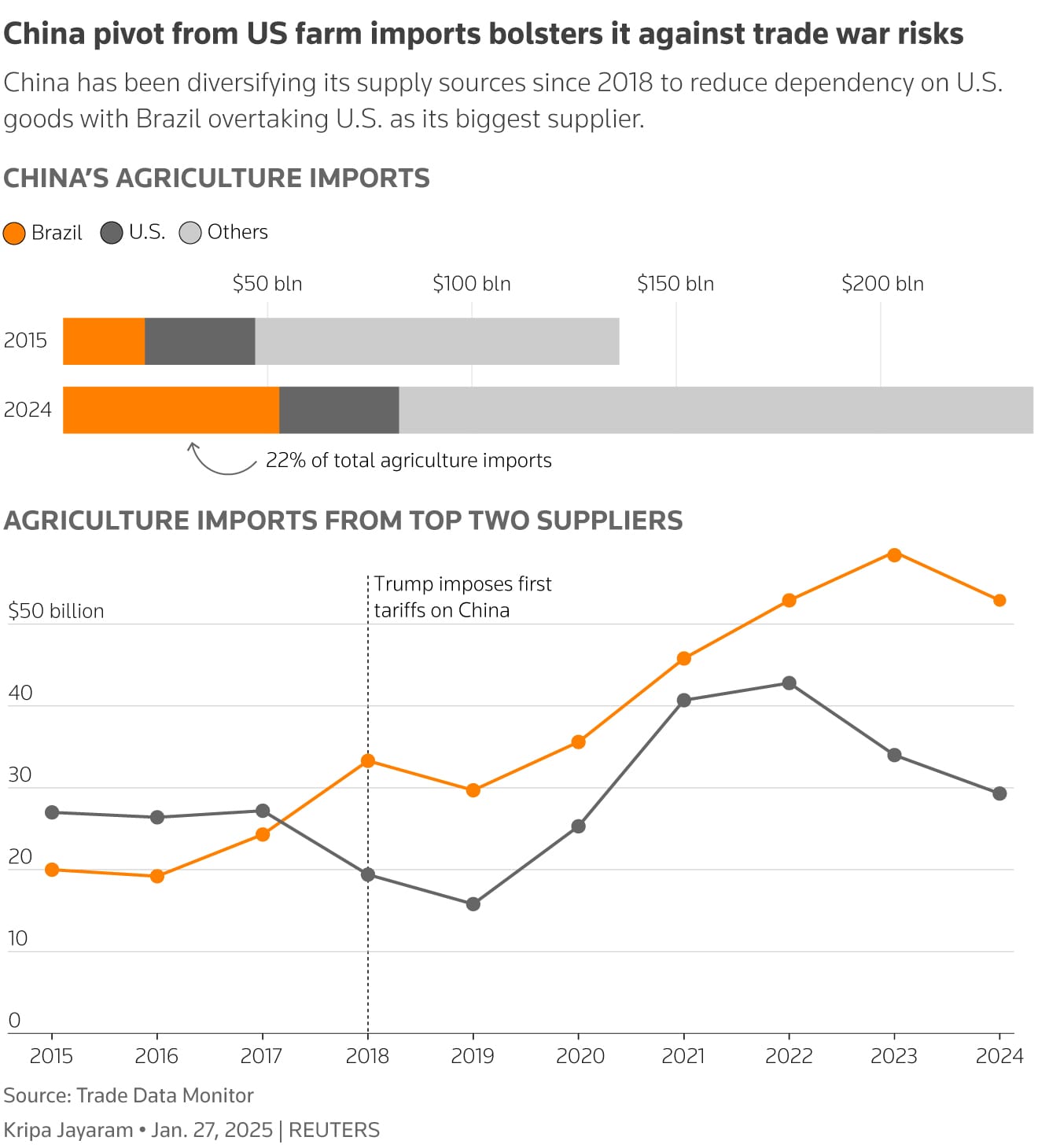
The Devastating Impact on Trump Country
Here's the brutal irony that's just beginning to sink in across rural America.
The farmers facing financial ruin are overwhelmingly located in states that voted for Trump in 2024.
Only Illinois and Minnesota – major soybean producers that went for Kamala Harris – might escape the political backlash.
The rest of America's agricultural heartland is Trump country. And it's about to feel the pain.
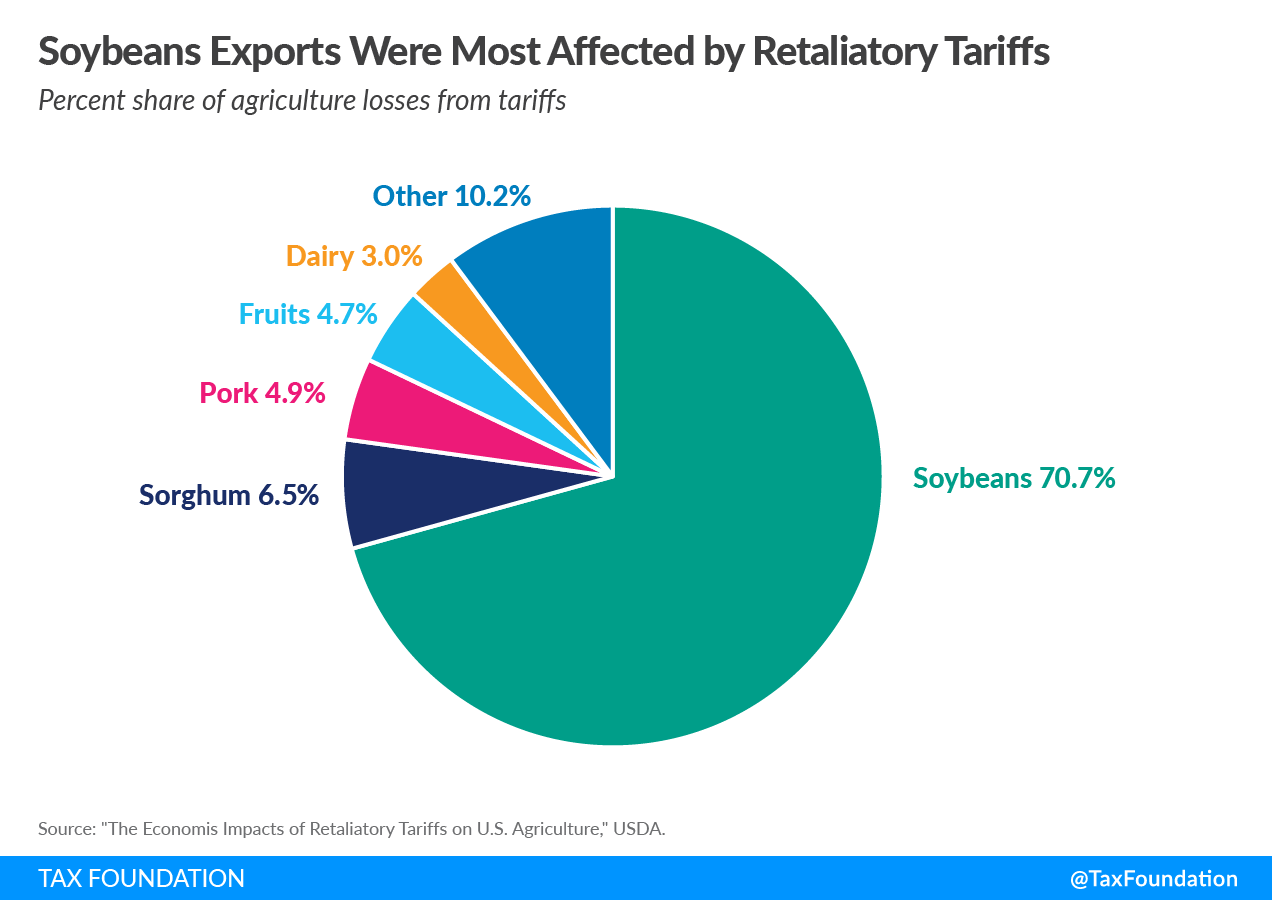
The numbers are staggering. During the previous US-China trade war under Trump's first term, American farmers lost approximately $27 billion.
A shocking 71% of those losses were soybean-related, according to the American Soybean Association.
"China is not backing down, saying it will 'fight to the end' if Trump continues to escalate what is already becoming a full-blown trade war," CNN reported.
And this time, the tariffs are significantly higher than before.
Economists predict the damage could be catastrophic, potentially wiping out family farms that have survived for generations.
The very voters who helped put Trump back in the White House now face the prospect of losing their livelihoods to his trade policies.
As combines sit idle and grain elevators empty, the question remains whether Trump will reconsider his approach or if America's farmers will pay the ultimate price for a trade war they never asked for.




